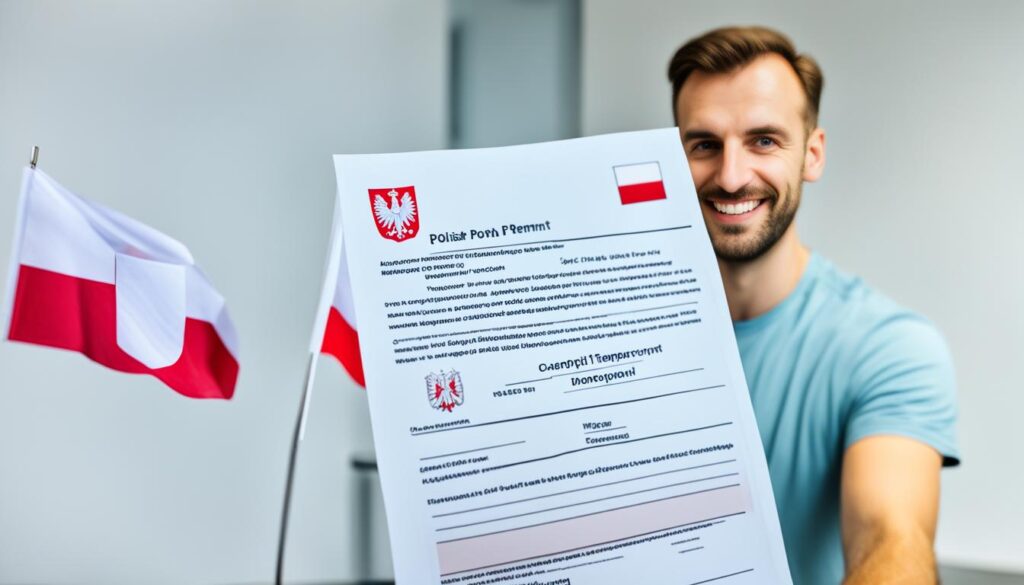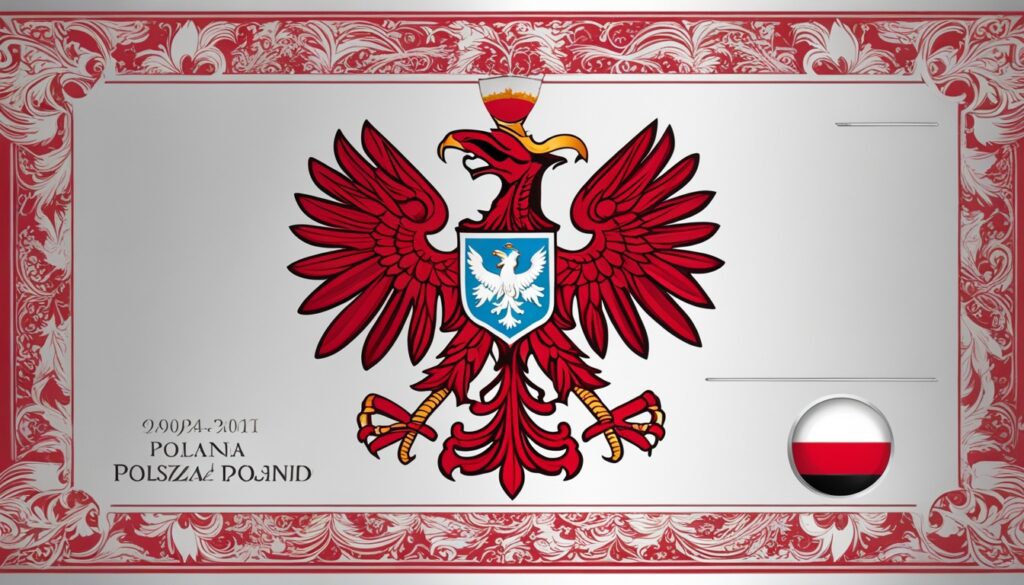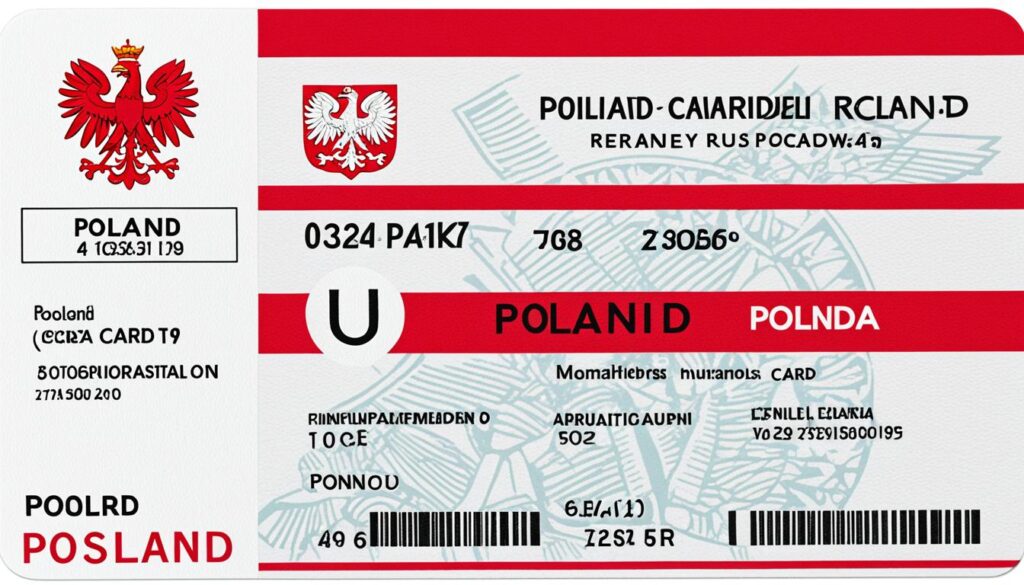Poland is not only the fifth most populous country in the European Union but also boasts the sixth-largest economy within its borders. The country presents a unique blend of rich history, vibrant culture, and economic stability, making it an irresistible destination for those considering relocating to Poland. Obtaining a Poland Residence Permit is a crucial step for anyone looking to settle in this dynamic nation, and it offers various forms of residency to accommodate different needs and aspirations.
For individuals seeking to live in Poland, the journey begins with understanding the options for a Poland Residence Permit, which can be temporary or permanent. Temporary residence permits are available for up to three years, and those looking for a more long-term solution can eventually transition to permanent residency, contingent on certain criteria, including continuous residence for five years.
Living in Poland opens the door to a myriad of opportunities, from thriving in the prosperous economy to experiencing the country’s cultural richness. Discover how you can initiate this transformative journey by following a structured process that includes submitting applications at regional Voivodeship Offices, presenting mandatory documents, and paying applicable fees, per the detailed guide available on the Nomad Capitalist website.
Key Takeaways
- Temporary and permanent residence permits cater to non-EU nationals with varying lengths of stay.
- Highly skilled professionals can benefit from the special EU Blue Card for residency.
- Applications must be submitted at regional Voivodeship Offices with complete supporting documents.
- Permanent residency allows for indefinite stay in Poland and travel within the EU for up to 90 days every 180 days.
- Family members of Polish citizens can apply for family reunification visas, valid for up to three years.
Introduction to Poland Residence Permits
For those fascinated by the rich history, vibrant culture, and flourishing economy of Poland, understanding the Polish residency requirements is essential. Whether you’re an EU citizen or a national of another country, navigating the paths of Polish visas and EU residency permits can open up numerous opportunities to live, study, and work in this beautiful country.
Overview of Types of Permits
Poland offers various residence permits tailored to different needs. For non-EU nationals, staying beyond 90 days necessitates a residence permit. These are typically available as:
- Temporary Residence Permit (up to 3 years)
- Permanent Residence Permit (indefinite stay)
EU citizens benefit from more relaxed rules, where permits are not compulsory for living in Poland. However, even with these simplified conditions, understanding Polish residency requirements proves advantageous for long-term prospects.
Benefits of Living in Poland
Living in Poland extends beyond meeting the Polish residency requirements—it’s about embracing a wealth of benefits:
- Access to EU Residency Permits: Polish residency often simplifies transitions to broader EU residency permits, enabling freedom of movement across Schengen Zone countries.
- Generous Visa Regulations: Schemes like the Schengen Visa (type C) enable stays up to 90 days, while the National Visa (type D) supports longer stays, making Polish visas flexible for different needs.
- Cultural Richness: A vibrant cultural scene with numerous festivals, historic sites, and a thriving arts community.
- Economic and Political Stability: A growing economy coupled with a stable political landscape ensures a secure living environment.
- Healthcare and Education: Residents enjoy access to high-quality healthcare and educational facilities.
These myriad benefits make securing the appropriate residence permit a crucial step for anyone planning to integrate and thrive in Polish society.
Temporary Residence Permit

The Temporary Residence Permit in Poland is tailored for non-EU nationals aiming to dwell longer than three months while enabling lawful residence, employment, and study opportunities. This comprehensive guide elucidates the requisites through eligibility criteria, application process, and necessary documentation.
Eligibility Criteria
To qualify for a Temporary Residence Permit, applicants must fulfill specific criteria based on employment, academic pursuits, or family ties. The permit caters to family members of Polish citizens with legally recognized marriages exceeding three months. Furthermore, marriage recognition varies under Polish law, particularly concerning same-sex marriages.
Application Process
Embarking on the Application Process involves several stages, starting with a visit to the Voivodeship Office. Key prerequisites include:
- Providing proof of legal employment or university acceptance letters
- Submission of requisite documents certified as true copies by the local office or notary
- Verification of financial means, at least PLN 300 for up to 4 days or PLN 75 per day beyond 4 days
Stamp duty for the Application Process is PLN 440, and the residence card issuance fee stands at PLN 50.
Required Documentation
Applicants must gather and submit an array of documents that include:
- Identification and valid travel documents
- Evidence of financial stability, such as income proofs (PLN 776 for single applicants, PLN 600 per family member)
- Proof of legal employment or educational acceptance
- Legal marriage documentation, if applicable
Polish work permits might also be necessary for employment-based applications. The permit is typically granted for up to three years, with reapplication needed upon expiration.
| Requirement | Details |
|---|---|
| Stamp Duty | PLN 440 |
| Monthly Income for Single Applicant | PLN 776 net |
| Monthly Income per Family Member | PLN 600 net |
| Residence Card Fee | PLN 50 |
| Minimum Financial Means for Entry | PLN 300 for up to 4 days, PLN 75 per day after |
Permanent Residence Permit

Obtaining a Permanent Residence Permit in Poland offers many benefits to individuals looking to make their stay long-term. The process, while detailed, sets clear Polish residency requirements and provides enduring advantages for successful applicants.
Eligibility Criteria
To qualify for a Permanent Residence Permit, you need to satisfy specific Polish residency requirements such as:
- Having lived in Poland for at least five consecutive years under a temporary residence permit.
- Being married to a Polish citizen.
- Possessing Polish heritage or origin.
- Meeting criteria under humanitarian grounds.
- Being a child of foreigners with a residence permit.
- Being a victim of human trafficking.
- Having a source of stable income.
Once these conditions are met, you can start the formal application process.
Application Process
The application for a Permanent Residence Permit is straightforward but requires attention to detail. Here’s a snapshot of the steps involved:
- Collect required documents, including previous residence permits, proof of stable income, and identification documents.
- Submit the application to the appropriate Voivodeship Office.
- Pay the stamp duty fee of PLN 640 to the account: Urząd Miasta Bydgoszczy, Wydział Podatków i Opłat Lokalnych, bank account no: 52 1240 6960 3892 1000 0000 0000.
- Pay the fee for issuing a residence card, which is PLN 50 (or PLN 25 for children under 16) to the account: Kujawsko Pomorski Urząd Wojewódzki w Bydgoszczy, Biuro Finansowo-Inwestycyjne, bank account no: 56 1010 1078 0000 4222 3100 0000.
- Submit passport-size photographs (35 x 45 mm), ensuring your face occupies 70-80% of the photograph.
- Provide fingerprints as part of the identification process.
- If additional documents are requested, submit them within a statutory time frame of not shorter than 7 days from the delivery of the request.
The Voivodeship Office manages the entire process, which can take about six to twelve months to complete. For detailed steps, check the official guide.
Benefits of Permanent Residency
The Permanent Residence Permit in Poland comes with substantial benefits:
- The right to work in Poland without additional documentation.
- Eligibility for acquiring a Pole’s Card.
- Access to public healthcare and educational systems.
- The ability to travel within the Schengen area for up to 90 days within a 180-day period.
- The option to apply for Polish citizenship in due course, which includes all the benefits of EU citizenship.
The duration of a Permanent Residence Permit itself is indefinite. However, the residence card must be renewed every ten years, ensuring continual compliance with Polish residency requirements.
Overall, securing a Permanent Residence Permit is a critical step in the Poland immigration journey, promising long-term security and numerous benefits.
Poland Residence Permit for EU Citizens

EU citizens benefit from a streamlined process when seeking to reside in Poland. Unlike non-EU nationals, there is no need for traditional EU residency permits. Instead, EU citizens must register their stay if they plan to stay for more than three months.
Upon arrival, EU citizens and their family members can reside in Poland for up to three months with a valid travel document. Those entering Poland for employment purposes can stay for up to six months without additional conditions, provided they can show evidence of continued job search.
To stay beyond this initial period, EU citizens must register their residence. This process is straightforward and involves few requirements. Registration certificates are valid for 10 years, and there are no fees associated with this process. However, failing to register residence is punishable by a fine.
EU citizens wishing to live in Poland long-term can look forward to permanent residency after five years of uninterrupted stay. This permanent residence status has significant benefits and ensures legal security. Family members who are non-EU citizens can acquire permanent residency after continuously residing for five years with the EU citizen in Poland, or as spouses of Polish citizens, after three years of legal stay.
For those planning their relocation to Poland, various Poland relocation services and a vibrant Poland expat community help ensure a smooth transition. These resources provide valuable support, making it easier for new residents to adapt and integrate into Polish society.
EU citizens enjoy a wide array of freedoms in Poland, including the right to work, study, and live with fewer bureaucratic hurdles. The welcoming atmosphere and streamlined procedures reinforce Poland’s reputation as an accessible destination for EU nationals seeking a new place to call home.
The continuous increase in the Poland expat community highlights the country’s growing appeal, and with efficient Poland relocation services available, moving to Poland has never been easier. Whether for employment, self-employment, studies, or personal reasons, Poland stands as a favorable option for EU citizens looking to relocate.
Poland Residence Card

The Poland Residence Card is a crucial document for individuals holding a residence permit in Poland. Functioning as a comprehensive identity card, it facilitates multiple entries into the country without the need for a visa and significantly eases various administrative processes.
Functionality and Benefits
The Poland Residence Card offers a multitude of benefits, making life smoother for expatriates. It allows its holders to cross the Polish border multiple times without needing a visa and enables them to stay in other Schengen Zone countries for up to 90 days within a 180-day period.
- Ensures smoother integration into the Polish community
- Facilitates travel within the Schengen area
- Enables easy renewal or replacement if personal details change
With Polska Authentication processes ensuring its validity and security, the card aids in providing legal backing and authoritative support to its holders.
Application Process
Applying for a Poland Residence Card is intertwined with the general Poland immigration services, ensuring a seamless experience. Below is a comparison table highlighting key aspects of the application process:
| Aspect | Details |
|---|---|
| Stamp Duty for Temporary Residence Permit | PLN 340 or PLN 440 |
| Issuance Fee | PLN 100 |
| Age for Fingerprint Collection | Starting from age 6 |
| Collection for Children Under 13 | By parent or legal custodian |
| Return of Residence Card | Within 14 days of acquiring citizenship or permit expiration |
| Certificate for Return of Card | Valid for 30 days upon request |
| Deadline for Voivode to Settle Case | 60 days |
| Appeal Deadline | Within 30 days |
Foreigners must return their Poland Residence Card if they acquire Polish citizenship or if their residence permit is withdrawn or expired, ensuring compliance with local regulations.
Conclusion
In conclusion, the diverse categories of residence permits in Poland are designed to meet various needs, whether for work, study, family reunification, or other purposes. By thoroughly understanding the eligibility requirements and application procedures, prospective residents can smoothly navigate the structured pathway to Polish residency. From submitting comprehensive documents to adhering to deadlines, being well-prepared will mitigate potential pitfalls in the application process.
The wealth of opportunities that await those who obtain a residence permit is significant. Whether you are targeting professional growth through Poland relocation services or seeking to integrate into the vibrant Poland expat community, securing the correct permit is a critical step. For those individuals who meet the necessary criteria, such as being enrolled in a full-time degree program or holding a professional title equivalent to a master’s degree, the journey towards making Poland your new home can be both rewarding and transformative.
Moreover, the benefits extend far beyond the permit itself. A residence permit not only unlocks the ability to live and work in Poland without the need for additional work permits but also paves the way toward potential future citizenship within the EU. This aligns with the conditions set out in the comprehensive rules and procedures available in detail here. Thus, securing a residence permit in Poland is not merely an administrative task but a foundational step in enhancing your quality of life and broadening your horizons in Europe.
FAQ
What types of residence permits are available in Poland?
What are the benefits of living in Poland?
Who is eligible for a Temporary Residence Permit in Poland?
What is the application process for a Temporary Residence Permit?
What documentation is required for a Temporary Residence Permit?
What are the eligibility criteria for a Permanent Residence Permit in Poland?
What is the application process for a Permanent Residence Permit?
What are the benefits of obtaining a Permanent Residence Permit in Poland?
How do EU citizens register their residence in Poland?
What is the Poland Residence Card and what are its benefits?
How do I apply for a Poland Residence Card?
Source Links
- https://switalski.law/your-complete-guide-to-obtaining-a-residence-permit-in-poland/
- https://visaguide.world/europe/poland-visa/residence-permit/
- https://visitworld.today/blog/1460/residence-permit-in-poland-how-a-foreigner-can-stay-in-the-country
- https://welcome.uw.edu.pl/before-you-arrive/visas-residence-permit/
- https://visitukraine.today/blog/1639/karta-pobytu-for-ukrainian-refugees-how-to-get-a-temporary-residence-permit-in-poland
- https://cudzoziemiec.bydgoszcz.pl/en/stay-in-poland/temporary-stay/temporary-residence-permit-work/
- https://mos.cudzoziemcy.gov.pl/en/informacje/zwiazek_EN/wprowadzenie_EN
- https://www.gov.pl/web/mswia-en/entry-and-residence-conditions-for-foreign-nationals-in-poland
- https://cudzoziemiec.bydgoszcz.pl/en/stay-in-poland/permanent-residence-permit/
- https://migrant.info.pl/en/Prolongation_of_a_visa_in_Poland
- https://www.gov.pl/web/mswia-en/entry-and-residence-rules
- https://www.gov.pl/web/mswia-en/registration-of-residence
- https://mos.cudzoziemcy.gov.pl/en/informacje/prawo-pob_EN/wprowadzenie_EN
- https://migrant.poznan.uw.gov.pl/en/wskazowki/what-should-i-know-residence-card
- https://migrant.info.pl/en/Residence_permit_for_a_fixed_period
- https://migrant.poznan.uw.gov.pl/en/procedury/scientific-research
- https://crede.com.pl/en/long-term-residents-eu-residence-permit/
- https://blog.msinpoland.com/residency-permits-international-students-poland

Comments